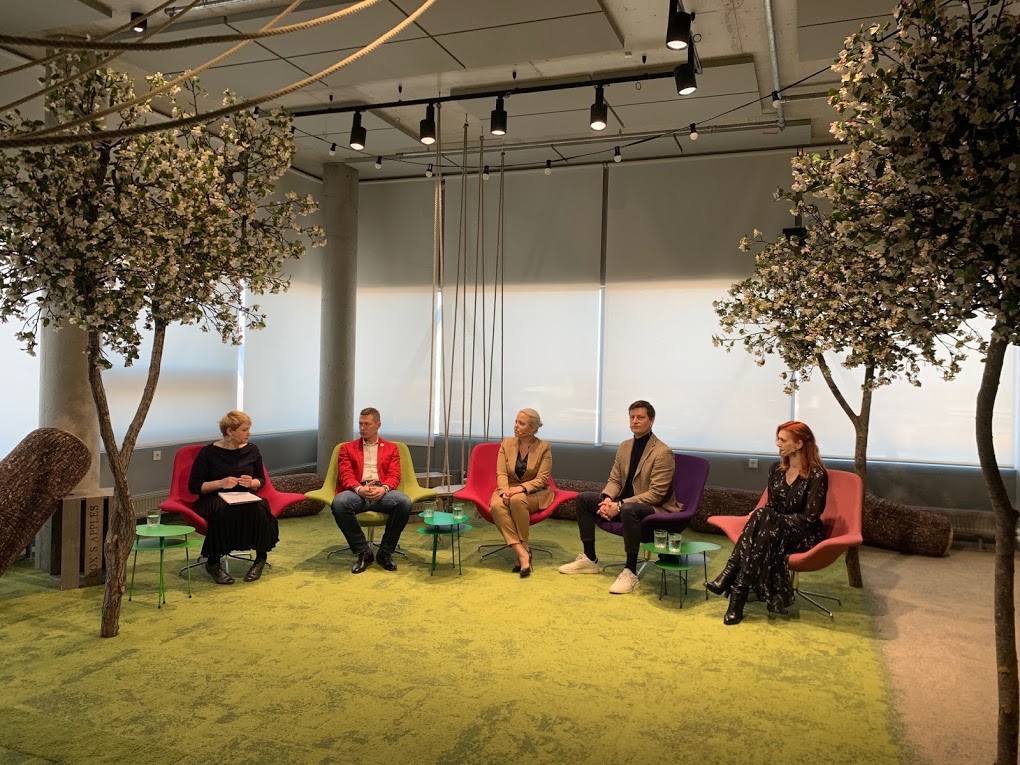On Diversity Day on April 17th, some of Estonia’s largest employers, Omniva, Rimi, Swedbank and Telia shared their experiences and thoughts on how to ensure equal opportunities for employees on the small Estonian labour market, and how it benefits employers.
Representatives from the four big companies participated in a panel, discussing what exactly does diversity mean for an organisation or the labour market in general and what kind of changes should be made to reduce prejudice and fears related to increasing diversity in society.
The head of human resources at Rimi, Kaire Tero, said that the company employs 2700 people from different backgrounds and that diversity is one of their core values. About the campaign “Age Doesn’t Matter” that Rimi launched last year, Tero said that their goal was to raise awareness in society at large about older people joining the workforce, and it worked. “At a certain age, it becomes more difficult to find work in your field, since there are very many different stereotypes about older employees. We wanted to advertise that everyone is welcome to work at Rimi, regardless of their age. We feel that in addition to out business objectives, we also have a responsibility to the society.”
Hillar Matto, head of recruitment at Omniva, stressed that diversity is an enormous asset for businesses. “As people, in businesses and in our society in general, it’s becoming increasingly important to notice and to value every person, as we are all important and extraordinary. The values of diversity lie in each and every one of us – let us be caring, respectful and polite towards one another.”
According to Mare Heinluht, the diversity line manager at Swedbank, diversity creates the opportunity to do business wisely in today’s complicated world. “There are many challenges that companies face every day that require different skill sets and knowledge. The more diverse your team is, the more likely you’ll be able to come up with creative solutions.”

Television and multimedia line manager at Telia Eesti, Karl Anton, also pointed out that tech companies could and should employ much more women than work in the field today. “IT and communications sector is not an all-boys club. For example, our former head of technology, Kirke Saar, did a great job in leading our technology line and was also named one of the three most influential IT managers in 2017. Currently, Kirke is continuing her career in Norway, leading Telia’s network development unit,” said Anton.
The diversity expert of the Estonian Human Rights Centre, Kelly Grossthal, who moderated the panel, noted an overall positive tendency that stereotypes in the labour market are on the decline, because younger generations are not afraid to try out different occupations and roles. “In a labour market as small as Estonia’s, every person is worth their weight in gold and a successful employer does all that they can to ensure no-one is pushed aside because of prejudice or stereotypes. Fortunately, more and more businesses consider the area of diversity management to be important.”
Since you are here...
It is important to protect everyone’s human rights, because it helps to keep stability and peace in the society. There are many challenges for protection of human rights in Estonia: intolerance has really come out of the closet. Bad things happen when good people are too passive, but together we can make a change.
Estonian Human Rights Centre is the competent, accountable and impactful independent human rights organisation in Estonia. Your recurring or one-time donation helps to stand up for human rights everywhere: in courts, in the media, in schools, in the workplace, on the streets and in governmental venues.
Donating is easy, and you can use your credit card if donating from abroad.
Donate now